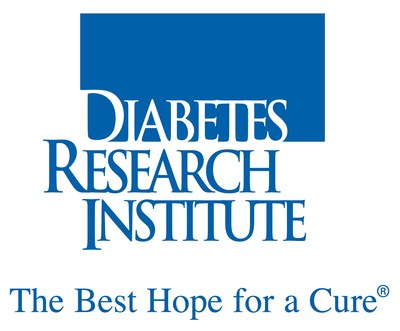|
12.04.2017 22:33:00
|
New Findings Reinforce Possible Role of High-Dose Vitamin D and Omega-3 Fatty Acids in Halting Type 1 Diabetes Progression
MIAMI, April 12, 2017 /PRNewswire-USNewswire/ -- There is a great need to identify "safe" and effective therapies that may prevent and positively impact the progression of autoimmune disorders, like Type 1 diabetes (T1D). Omega-3 fatty acids and vitamin D are both safe therapies with known anti-inflammatory effects and immuno-modulating properties, respectively. There have been several reports suggesting that there may be a potential beneficial effect from their use in diabetes.

Recently, investigators from several institutions in Italy in collaboration with Camillo Ricordi, M.D., Director of the Diabetes Research Institute at the University of Miami Miller School of Medicine, have reported on the case of an 8-year-old boy with new onset type 1 diabetes who was treated with vitamin D and high-dose Omega-3 fatty acids. Data on glucose control, exogenous insulin requirements, and insulin production from the native pancreas up to 16 months following diabetes onset were recently published in the European Review for Medical and Pharmacological Sciences (http://www.europeanreview.org/article/12416).
Upon diagnosis, the patient was hospitalized and an islet autoantibody test confirmed he had type 1 diabetes. Additional test results showed a low vitamin D level, and the patient was started on vitamin D supplementation on a daily basis.
At five months post-diagnosis, the patient's metabolic control substantially improved and his insulin requirements were reduced. Treatment with high-dose Omega-3 fatty acids was then introduced as an anti-inflammatory strategy aimed at potentially halting progression of autoimmunity and further loss of beta cell function. No adverse effects related to high-dose Omega-3 therapy were reported. The patient also maintained a gluten-free, high-fiber diet.
At 16 months post-diagnosis, the patient's blood glucose control remained excellent with a reported total daily dose of approximately 1.5 units of insulin, or 0.05 units per kg per day, compared to 0.39 units per kg per day at diagnosis. Levels of C-peptide also increased, indicating insulin production from the native pancreas, from 0.5 mg/ml at diagnosis (fasting) to 0.6 mg/ml (fasting) and 1.6 mg/ml (post-meal). Based upon this data, the researchers propose that therapy with both high-dose Omega-3 fatty acids and vitamin D may have contributed to the preservation of beta cell function and warrants further investigation.
"Our recent clinical results are very encouraging and support emerging clinical and preclinical publications on the role of Omega-3/vitamin D in diabetes and autoimmunity," explains Dr. Ricordi. "These findings lend credence to our recent FDA submission for upcoming clinical trials in both pediatric and adult Type 1 diabetes to further investigate this potential therapeutic strategy."
If combination Omega-3 and vitamin D therapy is able to delay type 1 diabetes progression, this is expected to result in retention of insulin secretion, minimal use of exogenous insulin, and improved metabolic control thus minimizing the risks associated with unstable blood glucose levels.
About the Diabetes Research Institute
The Diabetes Research Institute at the University of Miami Miller School of Medicine leads the world in cure-focused research. As the largest and most comprehensive research center dedicated to curing diabetes, the DRI is aggressively working to develop a biological cure by restoring natural insulin production and normalizing blood sugar levels without imposing other risks. Researchers have already shown that transplanted islet cells allow patients to live without the need for insulin therapy. Some study participants have maintained insulin independence for more than 10 years. The DRI is now building upon these promising outcomes by developing a DRI BioHub, a bioengineered "mini organ" that mimics the native pancreas. While various BioHub platforms are being tested in preclinical and clinical studies, the DRI is also developing strategies to eliminate the need for anti-rejection drugs and reset the immune system to block autoimmunity. For more information, please visit DiabetesResearch.org, call 800-321-3437, or Tweet @Diabetes_DRI.

To view the original version on PR Newswire, visit:http://www.prnewswire.com/news-releases/new-findings-reinforce-possible-role-of-high-dose-vitamin-d-and-omega-3-fatty-acids-in-halting-type-1-diabetes-progression-300438993.html
SOURCE Diabetes Research Institute Foundation
 Der finanzen.at Ratgeber für Aktien!
Der finanzen.at Ratgeber für Aktien!
Wenn Sie mehr über das Thema Aktien erfahren wollen, finden Sie in unserem Ratgeber viele interessante Artikel dazu!
Jetzt informieren!